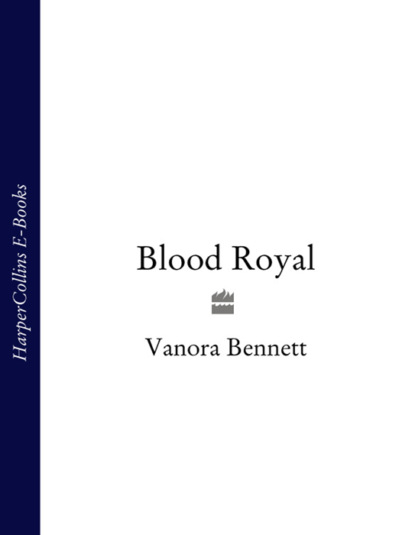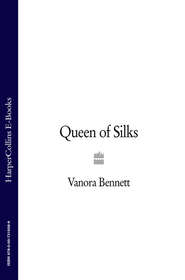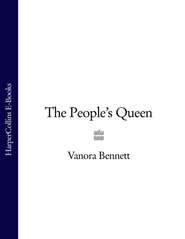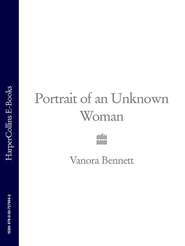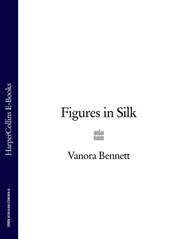По всем вопросам обращайтесь на: info@litportal.ru
(©) 2003-2024.
✖
Blood Royal
Настройки чтения
Размер шрифта
Высота строк
Поля
She turned to the lantern man, and said, with painful dignity, ‘I’m sorry to have kept you,’ and, again without looking at anyone else, stepped forward into the twilight.
Christine walked ahead, overwhelmed by her thoughts.
She didn’t even think of Catherine. Didn’t see the child’s face brighten when Owain appeared beside her. Didn’t see them loiter at the back of the group, out of the torchlight, as the shadows deepened. Didn’t hear the low-pitched conversation begin. Didn’t see the solicitous way he took her arm to help her over a tree root.
Christine recovered her poise as soon as she got inside by the firelight; it had only been unbearable while she was actually in that heartbreakingly lovely landscape, within touching distance of her daughter. Now that the pilgrims and their friends were pouring the nuns’ gift of wine and tucking into the hearty inn food and talking, she was perfectly capable of smiling and chatting with them again. She sat between Catherine and Owain at the trestles. Catherine was quiet, with pink in her cheeks. Owain served them both with food and drink; a good, trustworthy boy. Christine let him talk quietly to Catherine. Christine was thinking: I will see Marie in the morning.
She took Catherine into the abbey with her the next morning. She would have been failing in her duties as a chaperone if she’d left the child outside with Owain and the horses. But she didn’t want the Princess underfoot while she was with Marie, either. So, once inside, she sent her into the abbey church to ask for a blessing.
Five minutes later, Catherine came out of the church alone, and out of the abbey grounds, through the gatehouse. Owain was leaning against a fence, in a shady corner, with his back to the abbey, whistling. He was watching the soft wisps of pink-gold cloud creep across the blue of the sky. He didn’t notice her come up behind him and put her hands on each side of his lean warm back. ‘Boo,’ she said, and felt him startle; but not enough to dislodge her hands.
Still with his back to her, still with her hands on him over the fence, he said: ‘That was quick.’ His voice was trembling.
‘Meet you round here,’ he went on; and she flew along the fence to find a way to the other side.
They found a place to stand, side by side, where the fence stopped at a tree. They leaned against the tree, looking up, both gripped with a euphoric feeling of anticipation. They’d talked for so long last night, but there was still everything to find out. Neither of them meant it to happen now, as their arms touched; it just did. ‘Listen,’ Owain said; just to keep her there. ‘That’s a skylark.’
She shifted, and more of her yielding warmth was touching him. After a long moment, she moved away. He breathed out. But she turned herself round to face him. She was standing so close.
‘How long will you stay at the University, do you think?’ she asked softly.
Dizzily, daringly, he whispered back – longing to be a prince who could aspire to ride her off into the grey-green hills, knowing he was longing uselessly, now that everything back there in Wales had turned out the way it had, and he was no one, yet not caring about the futility of that longing because of the blood singing in his veins … ‘Until you go to London?’
There were tears in Christine’s eyes as she came out through the gatehouse. They made her vision run and stream.
So, for a moment, she couldn’t quite believe what she was seeing in the shadows under a tree outside, where the dappling of light and bark and grass and leaves was so confusing anyway.
Then she knew.
She called, in panic, ‘Catherine! Owain!’, and watched the shifting shape that had been both of them disentangle itself and separate into two bodies, two sets of arms and legs; two downturned blushing faces.
There was no point in saying anything. There had been many disappointments in her life. She knew better than to let her anger out at once. She needed time to think. She lowered her own head to unknot the horses’ reins.
She mounted.
‘Come,’ she said coolly, not meeting their eyes. ‘We’ll catch the others up if we hurry.’
And she spurred her horse on.
Christine rode and, in the rhythm of the horses’ hoofs, thought. As the miles slipped by, she let go of her first furious thoughts – that her trust had been betrayed; that Owain, whom she’d come to think of almost as a son, or a disciple, had set out deliberately to besmirch the purity of a princess; and that Catherine had inherited her immoral mother’s sluttishness if she was willing to ignore her royal blood and the prize of her virginity to satisfy a casual lust.
Still, it took many hundreds of paces through the forest **before Christine was able to understand that she was more angry with herself than she was with either of these children. It was she who’d thrown them together, after all, thinking that Owain would show the younger children how to live through unhappiness. She looked now at the two backs swaying ahead of her; the two bowed young heads. So friendless, both of them, and so beautiful: both of them so strangely left out of the life they found themselves living, worlds emptied of like-minded people; forced into silence. They’d started to talk to each other … She should have realised what kind of comfort they’d naturally find themselves seeking from each other. They were young … She had no one to blame for this but herself. Thank God she’d been able to nip it in the bud. No consequences. No one need know.
In another life – if Catherine had not been a princess of the blood, descended from Charlemagne and the kings of Troy, the purity of her line a sacred pact with God going back to the dawn of time – Christine, like anyone, might have rejoiced at this outcome. A love between these two young people, if there’d been nothing else at stake, might have been thought beautiful.
She sighed, and kicked her horse out of its trance. That was not to be. Best stick to reality.
Owain rode in front so no one could see the savagery on his face.
He ignored the branches slapping at him; he kept his horse nervously trotting and skittering. He didn’t care about its frothing mouth today.
Inside his head, he was conducting a furious exchange with Christine. Inside his head, she’d become every dismissive Englishman he’d ever encountered. ‘What about my blood?’ his own interior voice was shouting. ‘I am descended from Ednyfed Fychan, Seneschal of the Kingdom of Gwynedd under Llywelyn the Great. I am descended from Iestyn ap Gwyrgant, the last King of Gwent. My family are the barons of Hendwr and the lords of Penmynydd and Englefield and Iscoed and Gwynioneth, the leaders of Anglesey. My blood is as noble as any. I grew up the cousin of a king! I could have married any princess I liked … back then … three or four years ago, when everything was still possible …’
But he knew it was futile to protest.
He could hear the answers, crushing in their finality. ‘A conquered race now. You’re no one now.’ And: ‘Even if you were the Prince of Wales himself – even if the Welsh weren’t ruled by the English – you still wouldn’t be good enough for a princess of France.’
Catherine knew this was the end of Owain. He’d go … Her head drooped lower. And so would hope.
What a fool she’d been. What a fool. She should have … She realised that what she should be thinking was that she should have avoided letting herself feel this for a man she couldn’t marry. He wasn’t royal. She shouldn’t have seen him as a man at all; only as a retainer. But all she actually felt was hot-cheeked shame that she’d been stupid enough to let Christine catch them.
She’d been shaking – shaking with happiness. Just for that moment; drowning in honey.
No, for weeks she’d been happy. Being with Owain was like being let out of prison. Other princes and princesses had a life at court – balls, and dresses, and expenses, and flirtations. But that hadn’t started for Catherine and Charles; and, even for those admitted to it, court life only seemed to exist, these days, in muted, miniature form, behind closed doors. The children had always seemed to live in great wastelands of silence: with only the warmth of their friendship with each other and with Christine to sustain them. Then, suddenly, Catherine had found a new friend she could talk frankly to. They’d found a way to talk to each other. It wasn’t just the kiss. If she didn’t see Owain again, they wouldn’t be able to talk together any more.
It took her breath away. Her mind shied away from the thought that she might not see Owain again. She stared at the pommel in front of her and tried not to think. Her blood was racing.
They were almost at Paris when the trees thinned and they came out into fields. Dusk was falling. A ghostly moon was rising in the luminous sky; the evening star nearby.
She spurred her horse on. There’d be a moment, at least, before Christine caught on; caught up.
He turned as she came level with him. His glance was strained and desperate.
‘Venus … your star,’ he murmured very quietly, and her heart turned over at the knowledge that they were both still playing the game of not disturbing Christine. His face, as he’d turned, had been so pale; so angry. But now, with her here, for one moment more, he was burning with the torturing fire of hope. ‘I don’t know what I can promise,’ he said. ‘But I’ll always …’
He paused, looking for something he could do; something he could say. Into the silence came the sound of Christine, just behind, clicking her tired horse into life.
Owain closed his eyes, put his hand on his temples, and composed his white face into skull-like immobility.
Then, very suddenly, without looking back, he cantered off.
Catherine saw the distant little figure by the Queen’s house start running as soon as he saw her horse. But she ignored it, and kicked the horse on into a trot, straight towards the royal stables. There’d be time enough to talk to Charles later. She needed to compose herself first; to stop feeling so crushed by guilt; to try and erase the memory of Christine’s wounded eyes, and Owain’s bent head, and the silence.
But she heard Charles’ pounding footsteps go on racing towards her. He threw himself into her arms as soon as she had her feet on the ground.
He buried himself in her, shaking. His face was hot and red and snotty. His eyes were swollen.
‘I told the Saracen to tell you I’d gone!’ she cried, lashing out with her tongue. ‘She knew!’
That startled him. He looked up with wide eyes. ‘She did tell me,’ he snuffled, warily.
‘Then why are you crying?’ she hissed, still full of guilty fury.
His eyes filled with tears again. He hadn’t been panicking because she was gone. He hadn’t expected her to shout at him when she got back, either. She’d got it all wrong.
She took a deep breath and tried again. She put her arms round his shaking shoulders and rocked him to and fro while he cried himself out. ‘I’m sorry,’ she said, over and over again. ‘I didn’t mean …’ When his sobs quietened, she said gently: ‘What happened, darling, tell me?’
He fixed big, scared eyes on her. ‘I’ve got to get married!’ he cried.





